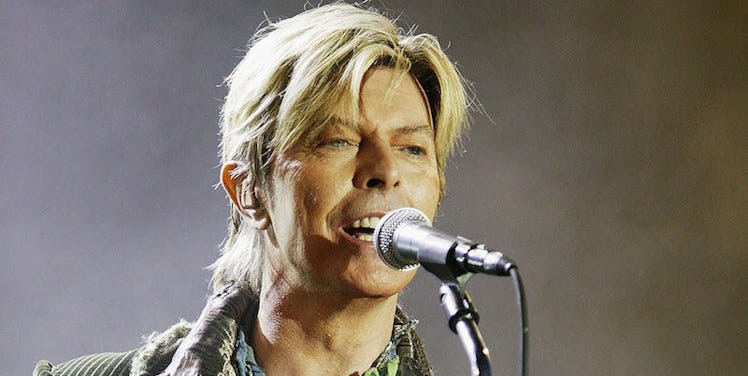
Why David Bowie Was More Than Just An Ally To The Queer Community
The death of David Bowie earlier this week shocked and upset thousands of music fans, especially those in the queer community.
While Bowie has been largely remembered as a "queer icon" he has often been called an "ally."
David Bowie was more than just an ally; he was a part of the queer community.
In the '70s, Bowie came out as gay to a journalist and in later recanted it to Rolling Stone, joking that he was a "closet heterosexual."
Over the years he redefined his sexuality, from gay to straight, to bisexual in his later years.
He married women, supposedly had affairs with men (including the long rumored sexual relationship with Mick Jagger).
After looking into the long list of sexual rumors and facts surrounding Bowie, it seems that gender was fairly unimportant to the singer.
His relationship with Romy Haag has also been largely forgotten by mainstream media. At the time Haag was possibly the most famous trans woman in Europe.
As a club owner and burlesque performer, she was known for her beauty and elegance all over Berlin. In the '70s, she also became Bowie's muse. She even appeared in the music video for "Boys Keep on Swinging," his anthem mocking male privilege.
His own artistic cross dressing makes you wonder if maybe he saw his own gender as largely a construct?
Who knows?
We will never really know, and as some have argued, attaching today's visions of gender politics to the artists of '70s, doesn't work, mainly because they were just artists doing cheeky things, nothing more.
It's hard to argue either because of the times. Maybe all we can really agree on was that over the years, Bowie said many different things about his sexuality.
In 1976, he told Playboy, "“It’s true – I am a bisexual,” only to go back on it and say he was straight, years later.
This upset so many of his queer fans, and was seen as such an act of betrayal.
But as a bisexual, I totally get it. I like to think Bowie was like me, but who knows?
I want to honor that if he says he was straight than that is what he is.
He deserves to not have his identity questioned, but at the same time, bisexuality is a shaky bridge that many do not feel comfortable walking on.
Being a bisexual often means not having a community. It's about having to reassert your sexuality over and over again, as so many call it a "phase."
It is about feeling out of place in both straight and gay spaces.
It is about knowing that one day you may end up with the member of the opposite sex (just like Bowie did with Iman), and struggling to maintain an identity that feels like it is slipping through your normalized hands.
And that is being bisexual today.
In the 1970s, sexuality was a different beast.
While Bowie protected himself with fame and status, much of what he was doing in the '70s and '80s was illegal.
In my home town of Oakland, California (hometown to such queer icons as Gertrude Stein and Isadora Duncan), it was technically illegal until 2010 to cross dress.
It was no different in the UK, where there were heavily restrictive laws.
These are laws that imprisoned Oscar Wilde -- that drove Alan Turing to kill himself.
While by the '70s, these laws were becoming weaker, they were not fully repealed until 2000s.
And for male bisexuals, it is more than just laws, it is attitude.
For all the popularity Bowie had, the feeling around male bisexuals have not changed.
They are still thought of as just gay, but scared to fully come out.
Even inside the community, gay men often will not date bisexual men.
It is not easy to come out as bisexual, even if you are a big star.
His relationship with those in the queer community was deeper more complex than ally ship.
It was fluid it was moving.
It was a time and a place, but also the start of something.
A queer icon yes, but an ally?
Calling Bowie an ally minimizes the Bowie that spoke to a generation of queer music lovers.